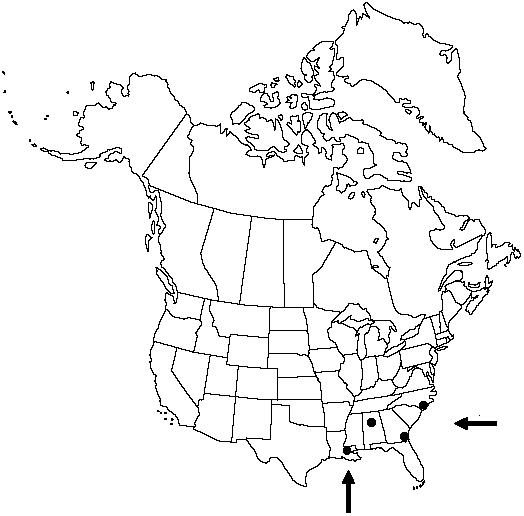Selaginella braunii
Gard. Chron. 1120. 1867.
Plants terrestrial, tree-shaped. Stems erect, highly branched, branches 4-forked, flat, not articulate, hispid. Rhizophores not seen. Leaves rugose. Lateral leaves distant, green, ovate-oblong, 2–2.5 × 0.7–1 mm; base truncate, basiscopically forming very short wing; margins green to slightly transparent, usually revolute, crenate; apex obtuse to rounded. Median leaves lanceolate-oblong to asymmetric, 2–3 × 1 mm; base peltate, rounded; margins green to slightly transparent, usually revolute, crenate; apex long-acuminate. Strobili solitary, 2–8 mm; sporophylls monomorphic, cordate to deltate-ovate, base glabrous, margins green, slightly crenate, apex cuspidate to acuminate. 2n = 20.
Habitat: Habitat unknown
Elevation: 0–50 m
Distribution

Introduced; Ala., Ga., La., N.C., native of China.
Discussion
Selaginella braunii is cultivated in greenhouses, nurseries, and gardens mainly in Florida, Georgia, Louisiana, and Texas. It is related to S. ostenfeldii Hieronymus of Thailand, Burma, and Indochina, and to S. mairei H. Leveillé, also from Burma and from Indochina.
Selected References
None.